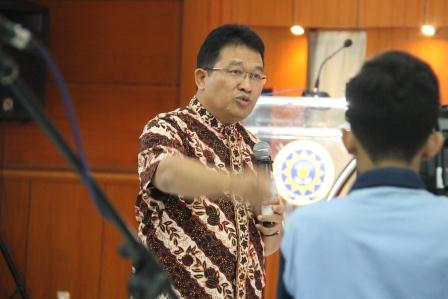Uji Klinik Obat Herbal
Indonesia merupakan negara yang kaya raya dengan potensi sumber daya alam hayati, termasuk tanaman obat. Sebagai negara yang terbentang di daerah tropis dalam hal kepemilikan keanekaragaman hayati tumbuhan obat Indonesia merupakan negara terbesar kedua di dunia, setelah negara Brasil. Sudah sejak lama para leluhur bangsa Indonesia memanfaatkan tanaman obat sebagai sarana untuk menjaga kesehatan dan mencegah penyakit. Salah satu bentuk obat herbal adalah jamu.
Apakah uji klinik itu?
Uji klinik atau clinical trial adalah penelitian yang dilakukan pada subjek manusia. Umumnya, uji klinis dilakukan pada pasien. Uji klinik atau penelitian eksperimental klinis dibedakan menjadi empat fase, yaitu penelitian klinis fase I, fase II, fase III, dan fase IV.
Jenis penelitian klinis berdasarkan fasenya disajikan pada tabel berikut.
Tabel 1. Fase trial klinik dan karakteristiknya (Bennet & Brown, 2008)
|
Jenis trial klinik |
Tujuan |
Metodologi & desain |
|
Fase nol |
Penjajakan awal pada manusia untuk senyawa atau agent baru. |
Kuasi atau eksperimental historis (pre-post design). |
|
Fase I |
Farmakologi klinik. Dosis aman, tolerabilitas dan profile farmakokinetika, farmakodinamik obat serta pengaruh makanan. |
20-80, subjek relawan sehat atau pasien sesuai klas terapi, trial klinik kuasi atau historic (pre-post study). |
|
Fase II |
Eksplorasi efek terapi. Dosis efektif dan rentang dosis aman , keamanan terutama untuk prediksi AE dan profil farmakokinetika, data mekanisme patofisiologi tambahan. Sebelum obat diedarkan.pact of new therapy |
30-300, subjek pasien dengan jumlah kecil; open label clinical trial. |
|
Fase III |
Konfirmasi efek terapi. Uji efikasi, farmakoekonomi dan keamanan pada jumlah sampel yang cukup dan representative. Sebelum obat mendapatkan izin edar. |
250-1000, subjek pasien sesuai dengan criteria inklusi dengan jumlah cukup-besar; RCT parallel atau cross over. |
|
Fase IV/post marketing surveilans |
Evaluasi efek terapi. Pemantauan ADR, tingkat keamanan dan efek/indikasi lain setelah obat diedarkan. |
2000-10.000, subjek: pasien sakit; observasional analitik atau case series. |
Uji klinik obat herbal adalah pengujian obat herbal pada manusia. Umumnya uji klinik obat dilakukan setelah bakal calon obat sudah menjalani uji praklinik, yang biasanya dilakukan pada hewan uji. Hanya saja untuk uji klinik obat herbal ada dua pendekatan yaitu pendekatan obat herbal sebagai jamu dan obat herbal non-jamu. Pada obat herbal jamu uji klinik bisa dilakukan meskipun tidak melalui uji praklinik. Namun, untuk obat herbal non-prosedur untuk sampai ke uji klinik—sebagaimana pengujian calon obat pada umumnya, yaitu melalui uji praklinik, uji klinik fase 1, fase 2 , fase 3, dan fase 4.
Uji klinik dilakukan untuk memberikan jaminan kepastian manfaat dan keamanan suatu obat atau obat herbal. Tidak semua obat herbal bebas risiko efek samping sehingga uji klinik ini perlu dilakukan untuk obat herbal demi menghindari adanya bahaya bagi masyarakat. Hanya saja uji klinik membutuhkan sumber daya dan dana yang tidak sedikit.
Universitas Ahmad Dahlan (UAD), Fakultas Farmasi, dengan memanfaatkan dana dari pemerintah juga sudah melakukan uji klinik untuk obat herbal berbahan bunga rosela, tongkat ali, dan jinten hitam.
Clinical Trial for Herbal Medicine
Indonesia is rich with natural resources potentials including herbal medicine. As a tropical country, Indonesia is the second largest country to produce herbal medicine after Brazil. It has been a long time that our ancestors make use of herbal medicines to maintain their health and cure diseases. One of the form is called jamu.
What is a clinical test?
A clinical trial is a research that is addressed to man as a subject. Generally, this is done to a patient. The clinical trial or also called an experimental research is classified into four phases. i.e. phase I, phase II, phase III, and phase IV. The four phases of clinical trial can be seen in the following table.
Tabel 1. Clinical Trial Phases and Their Characteristics (Bennet & Brown, 2008)
|
Types of Clinical Trial |
Purpose |
Methods & Design |
|
Zero Phase |
Preliminary study on man about chemical compound and new agent. |
Quasi or historical experiment (pre-post design). |
|
Phase I |
Clinical Pharmacology. Safe dosage, tolerability and pharmacokinetic profile, medical pharmacodynamics and food effect. |
20-80, healthy volunteer subject or patient suitable therapeutic class, historical or quasi trial clinic (pre-post study). |
|
Phase II |
Therapeutic effect exploration. Effective dosage and safe dosage range, safety especially to predict AE and pharmacokinetic profile, additional pathophysiology mechanism data, before release of medicine. Pact of new therapy |
30-300, little number of patient subject; open label clinical trial. |
|
Phase III |
Confirmation of therapeutic effect. Eviction, pharmaco-economy, and safety trial on enough sample and representative before medicine gets legal permit for distribution. |
250-1000, suitable patient subject with inclusion criteria with big number; RCT parallel or cross over. |
|
Phase IV/post marketing surveillance |
Therapeutic effect evaluation. ADR, safety level, and other effect/indication monitoring after medicine distribution |
2000-10.000, subject: sick patient; analytical observation or case series. |
Herbal medicine-clinical trial is a herbal medicine examination on man. Generally a clinical trial is done after desired prepared medicine undergoes pre-clinical trial, which is applied on animals. Yet, herbal medicine-clinical trial can undergo two approaches i.e. the trial as jamu and non-jamu. For herbal medicine as jamu, the clinical trial can be done without pre-clinical trial. But, for herbal medicine non-jamu to come to clinical trial, it follows the normal procedure i.e. from pre-clinical trial up to clinical trial phase 4.
Clinical trial is done to guarantee the medicine’s advantages as well as safety. Not all herbal medicines are free from side effects so that clinical trial is needed to avoid the danger for public. Nevertheless, clinical trial requires human resources and much fund.
University of Ahmad Dahlan (UAD) through its Pharmacy Faculty made use of government grant to carry out clinical trial for herbal medicine composed of rosela, tonglat ali, and black jinten.


